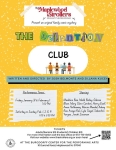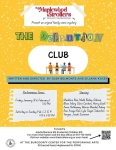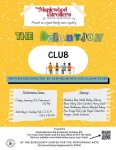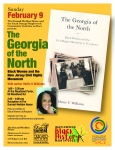Curious if South Orange Maplewood schools teach about anti-racism, systemic racism,whiteness as problematic
Not my school district, so I can't answer the question, but I do have a couple of questions for you:
- Can you point to any specific cases of a school district anywhere citing "whiteness" as problematic?
- What does "whiteness" mean to you?
(on the latter, that's a far more complicated question than I think would really belong in middle school, but I'm curious how much you, as a grown up, understand about the idea of what "race" is, what "whiteness" is, and how that has been created and changed over time)
How about not focusing on labels at all. Can't we simply teach our children that all people are human beings who should be judged by their actions not their appearance or physical abilities?
I’m so happy I never have to whitewash my fence ever again…the whiteness used to blind me doing that in the summer time. The stirring, the ugly pail and ugly six inch brush were just gross. I stay away from white sugar, bread, salt and eggs…
joan_crystal said:
How about not focusing on labels at all. Can't we simply teach our children that all people are human beings who should be judged by their actions not their appearance or physical abilities?
I think the problem with this approach is it depends on ignoring the present effects of centuries of institutional racism. On average a white newborn starts out with advantages over a black newborn. This is a deep and nuanced discussion.
Notupset is not here to start a deep and nuanced discussed. They are here to spread the (racist and untrue) idea that schools are now teaching that being white is a problem. That learning about systemic racism is somehow shaming to white children. It’s an idea born from fear and too much suckling at the toxic teats of Newsmax, Fox News and Tucker Carlson.
Notice how they neatly conflated the ideas of anti-racism and systemic racism with “whiteness as problematic”? Two legitimate topics for education and discussion and a third which is ridiculous and nonexistent. It’s an approach which is either ignorant or malignant.
mrincredible said:
I think the problem with this approach is it depends on ignoring the present effects of centuries of institutional racism. On average a white newborn starts out with advantages over a black newborn. This is a deep and nuanced discussion.
We should not ignore the past but we should learn from it. Our schools can and should be a vehicle of change to counteract pre-judgement of others based upon their appearance. It is not just an issue of skin color. Studies have shown that taller people start out with advantages that shorter people don't have. Those born with disabilities statistically have fewer advantages than those who are not.
PVW said:
Not my school district, so I can't answer the question, but I do have a couple of questions for you:
- Can you point to any specific cases of a school district anywhere citing "whiteness" as problematic?
- What does "whiteness" mean to you?
(on the latter, that's a far more complicated question than I think would really belong in middle school, but I'm curious how much you, as a grown up, understand about the idea of what "race" is, what "whiteness" is, and how that has been created and changed over time)
In my post-public education life I have had courses that included teaching around the problems of "whiteness," that speaks of "whites" being oppressors. For me the concept of "whiteness" is mostly nonsense, as it is normal for dominant cultures everywhere to do things in the ways that seem to work best, to just do things they way they have been done. It makes sense that in societies everywhere, people try to succeed the best they can within that society. The folks that have issues with "whiteness" think of it as the aspects and attitudes of predominatly white countries that come from Western enlightenment culture, that theoretically put people of color at a disadvantage. Also, theoretically there is inherrant belief by white people that "white" (Western) ways are best. But again, all dominant cultures seem to be this way. And in my experience, most Western predominantly white countries allow and often encourage other ways of doing things, though mostly these other ways are not taught in public primary schools.
I know this teaching shows up in corporations and in higher ed frequently and that it has turned up in plenty of primary schools across the country. I personally think it should not be showing up in middle schools or earlier. In high school I can imagine it being presented as one point of view, but if it is, it should be balanced by writings of black writers such as Thomas Sowell or Coleman Hughes.
I don't know how much the Community Coalition On Race is involved in the school district's curriculum or courses or one off presentations or seminars. But the resources they recommend fall in the category of CRT, anti-racism and that whiteness/aspects of Western culture are problematic.
mrincredible said:
I think the problem with this approach is it depends on ignoring the present effects of centuries of institutional racism. On average a white newborn starts out with advantages over a black newborn. This is a deep and nuanced discussion.
Notupset is not here to start a deep and nuanced discussed. They are here to spread the (racist and untrue) idea that schools are now teaching that being white is a problem. That learning about systemic racism is somehow shaming to white children. It’s an idea born from fear and too much suckling at the toxic teats of Newsmax, Fox News and Tucker Carlson.
Notice how they neatly conflated the ideas of anti-racism and systemic racism with “whiteness as problematic”? Two legitimate topics for education and discussion and a third which is ridiculous and nonexistent. It’s an approach which is either ignorant or malignant.
Whiteness being problematic is often included in CRT and Anti-racist teaching, such as that from Ibram X Kendi. The problem of whiteness and the idea that we live in a White Supremecist country may not ever be discussed in the school district, but I wouldn't be shocked if it were.
There was a time in the country's history when race was the single biggest determinant of one's situation in society, due to racism. And racism is real and still impacts our society. However, racism is no longer that top factor in determining one's chances, as it once was.
I'm not sure what courses and other resources you've taken that talk about "whiteness" this way, but what you describe certainly doesn't align with my understanding.
Maybe he did a crash course in paint mixology at Riccardi bros… the shades of white that exist are mind boggling!!
PVW said:
I'm not sure what courses and other resources you've taken that talk about "whiteness" this way, but what you describe certainly doesn't align with my understanding.
Did you read "How To Be An Anti Racist"? There are many books on the Community Coalition On Race resource list for Racial Integration and Equity that include this approach. A good example is "How to Be Less Stupid About Race: On Racism, White Supremacy and the Racial Divide" by Crystal Fleming. This approach may not be in the schools. I was just curious if anyone knew for sure. If anyone has a child at CHS you could ask them if white supremacy as an ongoing concern, whiteness being bad or that white people are currently oppressors has ever come up in their classes.
notupset said:
In my post-public education life I have had courses that included teaching around the problems of "whiteness," that speaks of "whites" being oppressors. For me the concept of "whiteness" is mostly nonsense, as it is normal for dominant cultures everywhere to do things in the ways that seem to work best, to just do things they way they have been done. It makes sense that in societies everywhere, people try to succeed the best they can within that society. The folks that have issues with "whiteness" think of it as the aspects and attitudes of predominatly white countries that come from Western enlightenment culture, that theoretically put people of color at a disadvantage. Also, theoretically there is inherrant belief by white people that "white" (Western) ways are best. But again, all dominant cultures seem to be this way. And in my experience, most Western predominantly white countries allow and often encourage other ways of doing things, though mostly these other ways are not taught in public primary schools.
It sounds like you think we should be talking instead about Western enlightenment supremacy (a dominant culture that allows and often encourages other ways of doing things, as you put it, leaving the “as it sees fit” part unsaid).
It has its merits, as far as supremacies go, but no system is perfect, right? It sounds like we can agree that racial subjugation under threat of violence was a whiteness problem for the first two centuries of Western enlightenment supremacy in this country. We also agree that “racism is real and still impacts our society.”
My question for you, then, is: When did Western enlightenment supremacy and real, impactful racism diverge?
I’d also be interested to hear how you acquired the confidence to assert the frequency of white-oppression teaching in corporations and schools.
DaveSchmidt said:
It sounds like you think we should be talking instead about Western enlightenment supremacy (a dominant culture that allows and often encourages other ways of doing things, as you put it, leaving the “as it sees fit” part unsaid).
It has its merits, as far as supremacies go, but no system is perfect, right? It sounds like we can agree that racial subjugation under threat of violence was a whiteness problem for the first two centuries of Western enlightenment supremacy in this country. We also agree that “racism is real and still impacts our society.”
My question for you, then, is: When did Western enlightenment supremacy and real, impactful racism diverge?
I’d also be interested to hear how you acquired the confidence to assert the frequency of white-oppression teaching in corporations and schools.
Of course no country or culture or political system is perfect. Western culture is certainly the worst, except for all of the others. Bias, racism and slavery have been part of civilization forever. In the last 100 years great leaps have been made in Western culture to move beyond most bigotry. (I only recently learned about the great lengths Great Britatin went to in stopping the slave trade starting in 1807). Yet, there are probably more slaves in the rest of the world now than there were in the 18th and 19th centuries. Now, of course slavery is outlawed in the West and even bigotry is generally shamed in Western society. That is not the case in vast parts of the rest of the world, Quite the opposite. However, little attention is paid to other cultures' die-heard racism.
somewhat off topic, but here goes:
proposal: It would be better if Caitlin Clark were black.
eta: or said differently, it would be better if the success and accolades attributed to CC were that of a black player.
Have you taken a look at the ADL website recently or attended any of their virtual webinars or briefings? White supremacy in the US are identified as a major, though not the only, cause of hate crimes in this country.
I have no knowledge of how race is treated in MSO district curricula, and it sounds like you don't either, so this is really a discussion about what we, as adults, think about race.
Your comments about other countries and societies makes it sound like some people want to replace American culture with some other culture, but I can't say I've ever heard anyone actually pushing for that. Pointing out flaws in one's own society is, in my experience, a call to improve one's society, not a call to replace it with another, so I'm not sure what pointing out the flaws in other societies is meant to accomplish. We don't live there, we live here. (for the same reason, talking about how things were worse in the past seems of limited utility, as we don't live then, we live now)
You also, I think, seem to be saying that being white is inherently bad? I suppose you can probably find someone to say that (Fox News, I'm sure, is on the case), that sounds like a pretty fringe, extreme view held by almost no one.
You also, I think, are suggesting that white supremacy is not currently a concern? I wish that were true, but sadly it's still very much a thing. As a small illustration -- this past weekend I was at Gettysburg, site of a major civil war battle in 1863. The Confederacy was, of course, a literal army of white supremacy, and was defeated in 1865 -- a long time ago. I'm sure you've covered Reconstruction, and the end of that, and the resurgence of white supremacy after that, through its formal defeat in 1968 -- still a long time ago, though not as long as 1865.
Anyway, if you go to Gettysburg, there's a lot of memorials -- apparently it's the largest collection of outdoor sculpture in the world (I haven't fact checked that claim, but there are definitely a lot of monuments). It was Memorial Day weekend, so a lot of American flags placed on graves at at all the different memorials -- the majority of which are for Union soldiers and divisions.
There are also some Confederate memorials, especially along Seminary Ridge, where their lines were. There's one enormous status of Robert E. Lee. Two things I want to draw your attention to -- first, why are there Confederate Memorials? The standard line is that we recognize people on both sides were Americans and we want to honor their bravery, but I'm not sure I've ever seen, say, Loyalist memorials at Revolutionary War battlefields. Second -- some of those CSA memorials people had put confederate flags on -- Lee's had a giant flower wreath. This past weekend is a lot more recent than 1968 or 1865, and people are still paying honor to the confederacy -- maybe white supremacy isn't as safely in the past as we wish it were?
PVW said:
I have no knowledge of how race is treated in MSO district curricula, and it sounds like you don't either, so this is really a discussion about what we, as adults, think about race.
Exactly.
joan_crystal said:
Have you taken a look at the ADL website recently or attended any of their virtual webinars or briefings? White supremacy in the US are identified as a major, though not the only, cause of hate crimes in this country.
Most hate crimes are committed by people with serious mental health issues, imho. Mental health problems are one of our society's biggest problems. Current major issues from my perspective in the country now, particularly among children and young adults: Addiction to smart phones and social media and need for likes and followers, lack of spiritual guidance (more Buddhist teaching would be good), lessening of in person interaction with others on a day to day basis in youth and lack of unstructured play, lack of affirmation that people are valuable and loveable just as they are, lack of awareness that everyone suffers and our interconnection, lack of belief in one's own agency...
PVW said:
I have no knowledge of how race is treated in MSO district curricula, and it sounds like you don't either, so this is really a discussion about what we, as adults, think about race.
Your comments about other countries and societies makes it sound like some people want to replace American culture with some other culture, but I can't say I've ever heard anyone actually pushing for that. Pointing out flaws in one's own society is, in my experience, a call to improve one's society, not a call to replace it with another, so I'm not sure what pointing out the flaws in other societies is meant to accomplish. We don't live there, we live here. (for the same reason, talking about how things were worse in the past seems of limited utility, as we don't live then, we live now)
You also, I think, seem to be saying that being white is inherently bad? I suppose you can probably find someone to say that (Fox News, I'm sure, is on the case), that sounds like a pretty fringe, extreme view held by almost no one.
You also, I think, are suggesting that white supremacy is not currently a concern? I wish that were true, but sadly it's still very much a thing. As a small illustration -- this past weekend I was at Gettysburg, site of a major civil war battle in 1863. The Confederacy was, of course, a literal army of white supremacy, and was defeated in 1865 -- a long time ago. I'm sure you've covered Reconstruction, and the end of that, and the resurgence of white supremacy after that, through its formal defeat in 1968 -- still a long time ago, though not as long as 1865.
Anyway, if you go to Gettysburg, there's a lot of memorials -- apparently it's the largest collection of outdoor sculpture in the world (I haven't fact checked that claim, but there are definitely a lot of monuments). It was Memorial Day weekend, so a lot of American flags placed on graves at at all the different memorials -- the majority of which are for Union soldiers and divisions.
There are also some Confederate memorials, especially along Seminary Ridge, where their lines were. There's one enormous status of Robert E. Lee. Two things I want to draw your attention to -- first, why are there Confederate Memorials? The standard line is that we recognize people on both sides were Americans and we want to honor their bravery, but I'm not sure I've ever seen, say, Loyalist memorials at Revolutionary War battlefields. Second -- some of those CSA memorials people had put confederate flags on -- Lee's had a giant flower wreath. This past weekend is a lot more recent than 1968 or 1865, and people are still paying honor to the confederacy -- maybe white supremacy isn't as safely in the past as we wish it were?
Serious thread drift here, which is fine of course. There has always been racism and bias and dominant culture everywhere on earth, through every era. I do not think "whiteness" or being white has anything particular to do with this - the evidence is that these problems are among all cultures. The dominant culture in the US has had many racists among it's citizens and had many racist policies back in the day. I personally have had instruction that "whiteness" is a problem and I know it is not uncommon in corporate America, in government and in higher ed, where it comes out of DEI departments. It has been found in some public schools. I hope it isn't taught in SOMSD, but I wouldn't be shocked if it were. If anyone has a sense of this either way I would be curious to know about it. It would be a useful anecdotal data point. That is all it would be though. But I am curious how my community handles this in our schools.
I've never had any training at work that says "whiteness" is a problem. I have had DEI sessions, where we talk about implicit bias, which is of course not at all the same thing. I'm wondering, where have you worked that you've had sessions talking about "whiteness" being a problem?
An example of the “whiteness is bad” instruction that notupset knows is being taught in plenty of other primary schools might also be clarifying.
notupset said:
Most hate crimes are committed by people with serious mental health issues, imho. Mental health problems are one of our society's biggest problems. Current major issues from my perspective in the country now, particularly among children and young adults: Addiction to smart phones and social media and need for likes and followers, lack of spiritual guidance (more Buddhist teaching would be good), lessening of in person interaction with others on a day to day basis in youth and lack of unstructured play, lack of affirmation that people are valuable and loveable just as they are, lack of awareness that everyone suffers and our interconnection, lack of belief in one's own agency...
One could argue that Adolph Hitler had serious mental health issues. I am not sure you could say the same about all of the people who followed him and carried out his agenda. There are lots of political, social and economic reasons why hate crimes are escalating so rapidly in this country. Mental illness accounts for only a small percentage of them.
DaveSchmidt said:
An example of the “whiteness is bad” instruction that notupset knows is being taught in plenty of other primary schools might also be clarifying.
https://cdnsm5-ss9.sharpschool.com/UserFiles/Servers/Server_791028/File/race.pdf
notupset said:
DaveSchmidt said:
An example of the “whiteness is bad” instruction that notupset knows is being taught in plenty of other primary schools might also be clarifying.
https://cdnsm5-ss9.sharpschool.com/UserFiles/Servers/Server_791028/File/race.pdf
Well, that's not a "whiteness is bad" course. It's an elective high school course in Hillsborough, NJ, available to students (presumably as seniors) after they've taken world history and US History I and II. It's in this list of elective courses.
AP United States Government and Politics Curriculum Guide (Board Approved: 12/19/2022)
AP European History Curriculum Guide (Board Approved: 11/23/2020)
AP Human Geography Curriculum Guide (Board Approved: 8/23/2021)
AP Microeconomics and AP Macroeconomics Curriculum Guide (Board Approved: 11/23/2020)
AP Psychology Curriculum Guide (Board Approved: 12/19/2022)
AP World History Curriculum Guide (Board Approved: 11/28/2022)
America in the New Millennium Curriculum Guide (Board Approved: 11/23/2020)
Community Connections Curriculum Guide (Board Approved: 11/23/2020)
Economics Curriculum Guide (Board Approved: 5/13/2019)
Gender Studies Curriculum Guide (Board Approved: 10/10/2022)
Genocide and Holocaust Curriculum Guide (Board Approved: 12/19/2022)
Government and Politics Curriculum Guide (Board Approved: 12/19/2022)
History of Pop Culture Curriculum Guide (Board Approved: 12/19/2022)
Individual and Interpersonal Behavior Curriculum Guide (Board Approved: 12/19/2022)
Race in the United States Curriculum Guide (Board Approved: 8/24/2020)
Sociology Curriculum Guide Curriculum Guide (Board Approved: 12/19/2022)
notupset said:
https://cdnsm5-ss9.sharpschool.com/UserFiles/Servers/Server_791028/File/race.pdf
From what I can tell, if a student in that class was asked, as you proposed, whether ”white supremacy as an ongoing concern, whiteness being bad or that white people are currently oppressors has ever come up in their classes,” the answer would be no.
Indeed, the first Essential Question in the unit on Race and Ethnicity in America Today specifically puts aside overt oppression and focuses on the dominant culture, a term you’ve said you favor.
Maybe you saw some media coverage that singled out Hillsborough’s course as an example of what you described. This article, for instance, claimed that CRT was “key content” in the course. As we can see, however, it’s really listed only as a key term, one of dozens. When the term Marxism came up in a high school course I took, we somehow learned what it was without being indoctrinated or even “taught” it.
nohero said:
Well, that's not a "whiteness is bad" course. It's an elective high school course in Hillsborough, NJ, available to students (presumably as seniors) after they've taken world history and US History I and II. It's in this list of elective courses.
I envy the students who are offered that elective.
I've often thought one elective could be an intro to philosophy class, where for the section on informal logical fallacies the homework is to go on MOL and find examples of each type.
(any social media would do, but this being a small community site one would be spared the more excessively vulgar, racist, sexist, etc language and imagery one would find on, for example, ex-twitter).
DaveSchmidt said:
From what I can tell, if a student in that class was asked, as you proposed, whether ”white supremacy as an ongoing concern, whiteness being bad or that white people are currently oppressors has ever come up in their classes,” the answer would be no.
Indeed, the first Essential Question in the unit on Race and Ethnicity in America Today specifically puts aside overt oppression and focuses on the dominant culture, a term you’ve said you favor.
Maybe you saw some media coverage that singled out Hillsborough’s course as an example of what you described. This article, for instance, claimed that CRT was “key content” in the course. As we can see, however, it’s really listed only as a key term, one of dozens. When the term Marxism came up in a high school course I took, we somehow learned what it was without being indoctrinated or even “taught” it.
If you look at the reading list, there are plenty of titles that assure you "whiteness" is problematic. And there are no texts that push back on this, best I can figure. Ideally the course would have some viewpoints pushing back on CRT, Anti-Racism and current white supremacy, such as Thomas Sowell, Coleman Hughes, etc. Anyhow, my question remains. Anyone have a CHS student who can say whether our school district offers classes that "whiteness" as problematic and oppressive?



























My guess is that in addition to teaching on slavery, Jim Crow, historic racism, Civil Rights Movement and Civil Rights act. I am curious if at some point in the middle school or high school curriculum that kids are taught about systemic racism, anti-racism and possibly whiteness as problematic. Anyone know if this is the case?